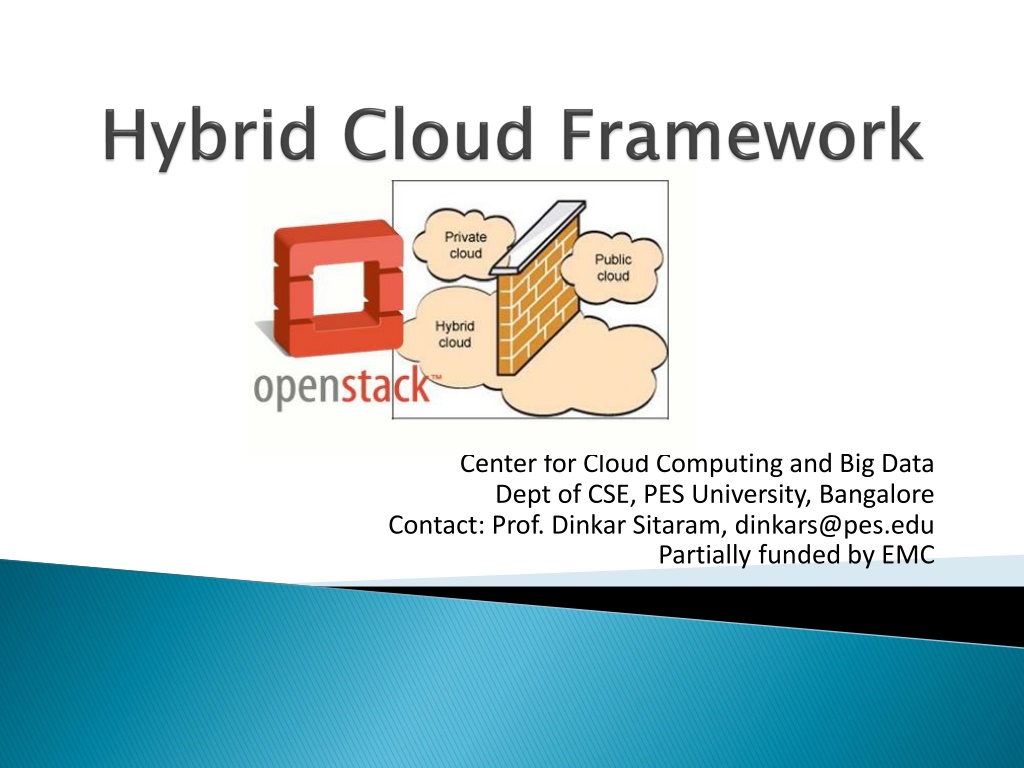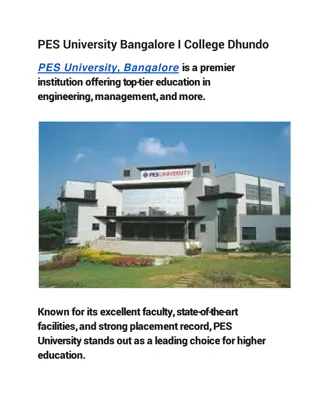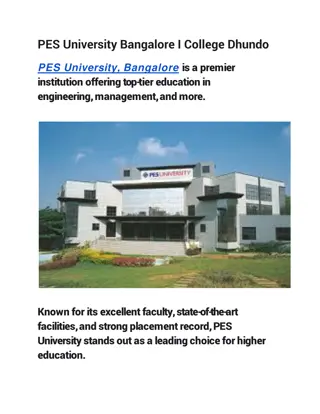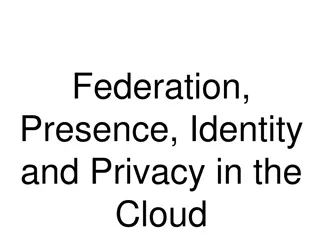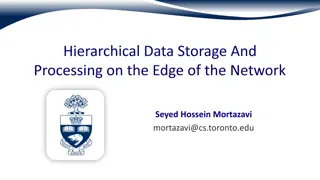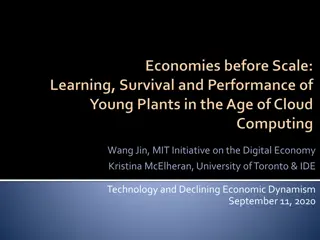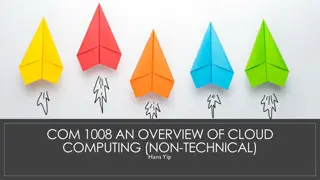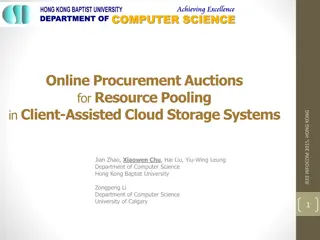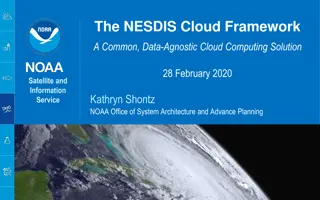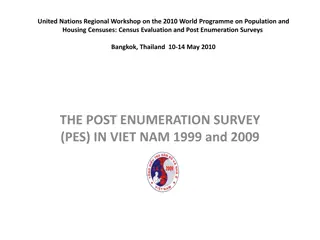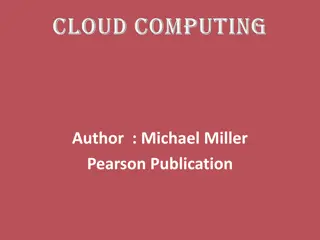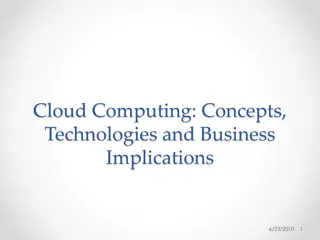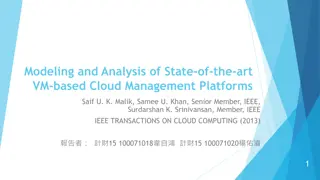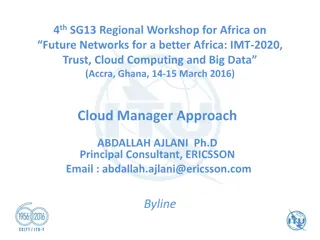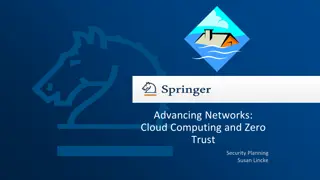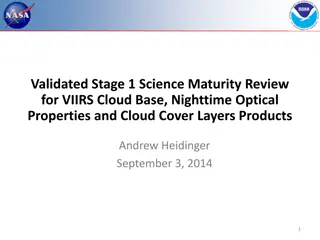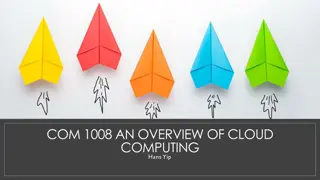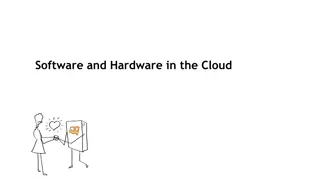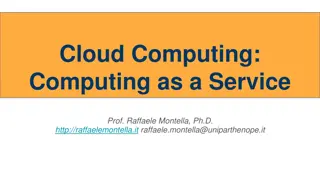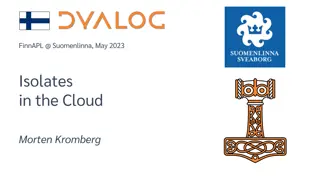Cloud Computing and Big Data at PES University
The Center for Cloud Computing and Big Data at PES University in Bangalore, led by Prof. Dinkar Sitaram, focuses on workload migration policies, scalability, and high availability in cloud computing. Their hybrid cloud implementation combines OpenStack and Amazon EC2, featuring an architecture with parent and child cells. The current deployment includes VPN, firewall nodes, and transport layer security for public and private cloud resources. Future work involves integrating federated security for enhanced cloud operations.
Download Presentation

Please find below an Image/Link to download the presentation.
The content on the website is provided AS IS for your information and personal use only. It may not be sold, licensed, or shared on other websites without obtaining consent from the author.If you encounter any issues during the download, it is possible that the publisher has removed the file from their server.
You are allowed to download the files provided on this website for personal or commercial use, subject to the condition that they are used lawfully. All files are the property of their respective owners.
The content on the website is provided AS IS for your information and personal use only. It may not be sold, licensed, or shared on other websites without obtaining consent from the author.
E N D
Presentation Transcript
Center for Cloud Computing and Big Data Dept of CSE, PES University, Bangalore Contact: Prof. Dinkar Sitaram, dinkars@pes.edu Partially funded by EMC
Bursting across different deployments Workload Migration Policies Support for Scalability High Availability Interface OpenStack with other clouds
Implemented Architecture Top Cell/ Cells Scheduler Pseudo- Child Cell Child Cell Private Cloud Resources Public Cloud Resources
Current Deployment VPN/Firewall Node VPN/NAT Firewall Node Transport Layer Security Top-Cell Public Cloud Pseudo-Child Cell Private Cloud Child Cell
Our implementation of a hybrid cloud consists of OpenStack as the primary cloud and Amazon EC2 as the foreign cloud. Cells Architecture of OpenStack is deployed to have a parent cell and child cells. The driver in pseudo-cell was re-written to be an EC2 driver.
Currently, not integrated with Federated Security Future work The driver uses the EC2 authentication and provides the EC2 virtualization platform to spawn the VM on EC2. The VM spawned on EC2 returns the endpoints which are used to update the databases of children and parent
Pseudo-Child Cell Handle incoming Messages and update Top Cell about status Nova-Cells Child Updates Database and makes call to Interface driver Nova-Compute Interface that speaks to the Public Cloud to execute resource requests Interface to the public cloud
Request for compute resources arrives at parent or top cell. The cells scheduler of the parent checks capabilities of all its child cells and selects a target cell as per policy If the target cell is not the EC2 pseudo- child cell then the scheduler routes the request to the target cell and it spawns a VM using local resources. If the request is routed to the EC2 pseudo-child cell then the VM is spawned using resources of Amazon by using its API provided in the driver. Once the VM is spawned in Amazon, it returns the endpoints to the target cell. This cell extracts required metadata from these endpoints. Each child updates their databases and then push the metadata to the parent to be updated in the parent. Top Cell/ Cells Scheduler Pseudo -Child Cell Child Cell Public Cloud Resources Private Cloud Resources
The proposed architecture is simple in implementation for many well-known clouds as it leverages hierarchical features already found in clouds such as OpenStack and Eucalyptus. This architecture has been implemented for federation between multiple OpenStack clouds and OpenStack-Amazon federation.
Take forward as a contribution to Openstack Integrate federated security
